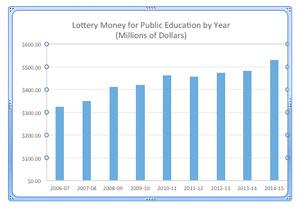
Cumberland County Commissioners and all but one member of the local legislative delegation came together Friday to talk over issues of joint concern, ranging from unfunded mandates to loss of revenues. Sen. Ben Clark (D-Cumberland/Hoke) was absent. Commissioner Ken Edge recited three concerns of special interest.
The county is asking the legislature to authorize local option revenue sources available to some, but not all, of the state’s 100 counties. Edge pointed out that counties are in the best position to understand local needs and should have the flexibility to direct sales tax revenues to local programs without strings attached. Commissioners encouraged the delegation to support Senate Bill 605 which gives local counties flexibility to enact a mix of sales taxes and use the receipts for general purposes.
On the subject of the North Carolina Education Lottery, Edge said Cumberland County is losing $5 million a year because of legislative action that changed the appropriation for school construction.
The original law dedicated 40 percent of lottery proceeds for building schools. Changes since then have reduced lottery proceeds to about 20 percent. This comes at a time when “the school board has asked for a new school in the Ramsey Street/Andrews Road area,” according to Edge. Those changes had been made “before the GOP took over,” said Rep. John Szoka (R-Cumberland). Szoka told county commissioners that he isn’t encouraged that the law is likely to be changed.
The third item of concern to commissioners is another source of lost revenue. Cumberland County Tax Administrator Joseph Utley told legislators that a new law enacted by the general assembly had exempted builders from property taxes on homes and commercial buildings not yet sold. Utley told the delegation that’s already costing the county more than $100 thousand in previously available revenue. Legislators had little sympathy for the county on this one.
“It’s a hard hit for anyone trying to grow a business,” said Rep. Billy Richardson (D-Cumberland), of home builders having to pay a tax on property that’s sitting dormant.
Commissioners also spoke of their disappointment in the recent legislative redistricting of the state’s congressional districts.
“We’ve lost effectiveness because Cumberland County is on the far edge of both the 8th and 9th congressional districts,” said County Commission Vice Chairman Glenn Adams.
Also discussed was greater demands being placed on administering services for the poor. Social Services Director Brenda Jackson noted that Cumberland County’s 30 percent population of poor residents is the highest in the state. She asked that the state consider providing resources to support programs that assist welfare recipients in finding work.
Counties need to be more aggressive in making their needs known to the legislature, according to Rep. Szoka, who is serving as chairman of the six-member legislative delegation. He urges county commissioners to strengthen their support for legislation in the form of resolutions and detailed reports.